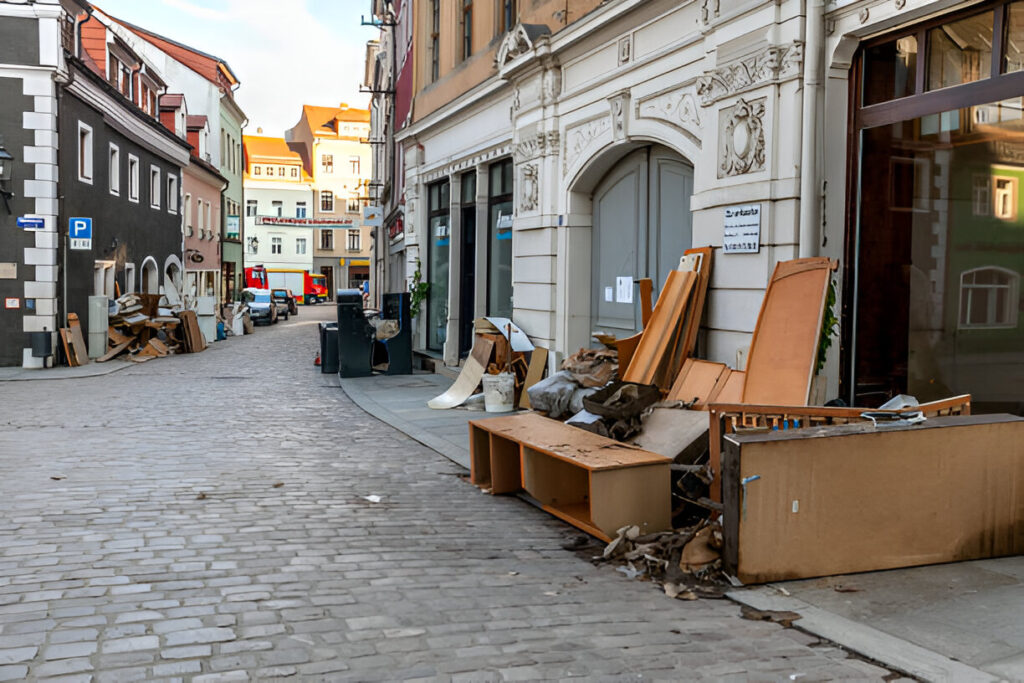Managing multi-unit housing entails a lengthy list of responsibilities, and maintaining clean, clutter-free properties is among the most critical. Junk buildup from tenant turnover, renovations, or general neglect can quickly turn a well-managed property into a logistical challenge. Property managers must develop efficient junk removal strategies that keep their buildings safe, presentable, and compliant with local regulations. A well-structured cleanup process not only enhances the living environment but also prevents costly damage and improves tenant satisfaction. We will explore practical approaches that property managers can adopt to streamline junk removal across multi-unit properties and maintain long-term cleanliness.
Effective Cleanup Strategies for Multi-Unit Property Managers
- Establish a Routine Junk Assessment Schedule
Regular assessments are the cornerstone of effective junk management in multi-unit housing. Property managers should establish a consistent schedule to inspect hallways, shared storage areas, basements, and outdoor spaces for abandoned furniture, appliances, and debris. These inspections help detect issues before they escalate into larger cleanup operations. For instance, leftover items after a tenant moves out can quickly pile up and attract pests or create safety hazards. Conducting quarterly or monthly junk evaluations can prevent that from happening. Managers can also utilize digital logs or property management software to track issues with junk, ensuring that nothing slips through the cracks. A structured routine not only minimizes clutter but also communicates to tenants that the property is professionally maintained, promoting accountability and discouraging residents from leaving unwanted items in shared spaces.
- Implement Clear Junk Removal Policies for Tenants
Transparency is essential when managing multi-unit properties. Many junk removal issues arise because tenants are unsure of what they can or cannot discard in dumpsters, storage rooms, or communal areas. By establishing clear junk removal policies, property managers can drastically reduce unnecessary clutter. These policies should outline acceptable disposal methods, identify designated areas for trash, and define penalties for improper disposal. Including guidelines in lease agreements ensures tenants understand their responsibilities from the start. Managers can also post visible reminders near dumpsters or recycling stations to reinforce proper behavior. Partnering with a professional team for junk removal in Boston can further support these efforts by ensuring timely and efficient cleanup of communal spaces. Offering periodic reminders via email or tenant portals further strengthens compliance. Clarity helps build a shared sense of ownership among residents, turning junk management into a collective effort rather than a constant management headache.
- Partner with a Reliable Junk Removal Company
Property managers dealing with frequent move-ins, move-outs, or renovation waste can benefit significantly from partnering with a professional junk removal service. These partnerships simplify cleanup operations by ensuring the timely removal of bulk items such as old furniture, appliances, and construction debris. Instead of coordinating one-off cleanups, managers can schedule recurring pickups that align with tenant turnover or maintenance cycles. A consistent service provider becomes familiar with the property layout and regulations, which helps improve efficiency and reduce costs over time. For properties located in busy cities like Boston, where space and disposal regulations can be complex, working with a reliable junk removal company ensures compliance with local waste management laws and regulations. Beyond convenience, outsourcing junk removal saves time, minimizes liability, and allows managers to focus more on tenant satisfaction and building upkeep.
- Designate Temporary Storage and Sorting Areas
One of the most common challenges in multi-unit housing is managing large volumes of junk between collection and removal. Designating a secure, temporary storage or sorting area can help property managers maintain control over the process. This area can be used to separate recyclable materials, reusable furniture, and true waste before scheduling pickup. Having an organized system reduces confusion and prevents dumpsters from overflowing. Property managers should also ensure that these areas are monitored and well-maintained to prevent unauthorized dumping. In some cases, implementing a “junk staging zone” with clear signage and scheduled pickup days can encourage tenants to dispose of unwanted items responsibly. This approach reduces disorder and creates a more manageable workflow, especially during peak times such as move-out seasons or renovation projects.
- Encourage Recycling and Responsible Disposal
Sustainability is becoming increasingly important in property management, and junk removal provides an opportunity to promote environmentally responsible habits. Instead of sending everything to the landfill, managers can set up recycling programs for items such as electronics, metals, cardboard, and glass. Partnering with local recycling centers or donation organizations enables reusable goods to find new homes, rather than becoming waste. Managers can even organize periodic “donation drives” where tenants can drop off items like furniture, clothing, or appliances. Such initiatives not only reduce junk disposal costs but also build community goodwill. Educating residents about these options through newsletters, online portals, or community meetings fosters a culture of responsibility. Encouraging recycling is both a cost-effective and eco-friendly strategy that elevates the property’s reputation while minimizing waste output.
Efficient junk removal is more than just a maintenance task—it’s an essential part of effective property management in multi-unit housing. A strategic approach that includes regular assessments, tenant education, reliable partnerships, and the effective use of technology ensures that properties remain well-organized and visually appealing. By fostering tenant cooperation, encouraging recycling, and scheduling consistent cleanups, property managers can minimize disruptions and maintain a safe, clutter-free environment. Ultimately, proactive junk removal practices create a more sustainable and harmonious living space that benefits both managers and residents alike.






